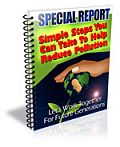Welcome to Composting Guide
Composting At Home Article

Teach the Family Composting At Home
from:Composting at home can not only be a way to use up all those household scraps while making good garden soil but also a way for the family to be doing something together while helping our environment. Composting at home is something many people are doing today as means to use up all those food waste products so they don’t' have to further fill up landfills. Composting at home may seem difficult and messy but it's actually relatively simple once you learn how it's done. It's actually easy for us because it's nature that does all the hard work. We just do the preparations. The worst part of composting at home is the waiting, especially when you have children helping. They have a hard time believing that all those leftover fruit and vegetable peelings will actually turn into nice black rich compost soil. The waiting is definitely the hardest part for them as it may take anywhere from six to twelve months.
You'll want to have a small composting bin inside your kitchen so you don't have to be running outside every time you have some leftover scraps. Vegetable and fruit peelings, coffee grounds and filters make perfect composting materials. Avoid using meats, bones or salty greasy foods. Your bin should have a cover to avoid awful smells in your kitchen. You can make your own kitchen compost bin with a pail with a cover or purchase a kitchen bin for composting at home.
Once your kitchen compost bin is full, take it outside to where your other large composting bin is located. Your outdoors composting bin may be a pile on the ground, a large metal drum or a commercial composting bin. You will need to have more than just the scraps of food in your outdoor bin. You need moisture in your bin to help the process of decomposition, which is what composting is all about. Add other dry ingredients for nitrogen. These may include, hay, straw, grass clippings or chopped leaves. The more sun your ingredients get, the better they'll heat up and decompose. Add water from time to time to keep the compost pile moist. It should be moist but not soggy. It should also be turned occasionally, perhaps once a week. If you see ants on your pile, it may be a sign that it's too dry.
The most important thing for successful composting at home is to have the correct amount of ingredients. Live any living thing, in order to live, they need moisture, air, food and warmth. If you keep this in mind are tend to your compost pile regularly, your composting at home project will be quite successful and you'll wonder why you didn't start it sooner.



